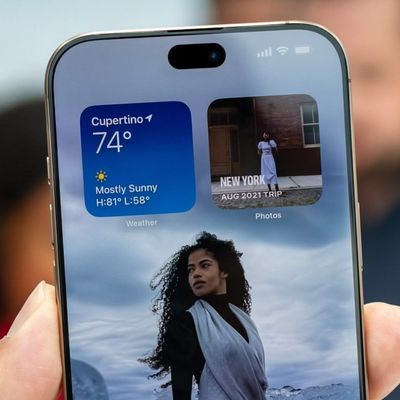The New Zealand Commerce Commission today sent a warning to Apple over concerns that the company misled customers about their replacement rights under the Consumer Guarantees Act and Fair Trading Act, reports the New Zealand Herald.
According to the commission, Apple may have violated New Zealand consumer law by telling customers its products have a two year warranty and also referring customers who purchase non-Apple branded products from Apple to the manufacturer for warranty issues.

From an eight-page statement released by the Commerce Commission:
We consider that Apple is likely to be misleading consumers by trying to exclude its liability for non-Apple branded products. If this behaviour is continuing, we recommend you take immediate action to address our concerns and seek legal advice about complying with the Fair Trading Act."
The New Zealand Herald says the Commerce Commission began an investigation into Apple's practices in April 2016 after receiving complaints from consumers who sought repairs from Apple but were told that their products were covered by consumer law for just two years.
Under the Consumer Guarantees Act, there is no set two-year period after which it expires, with the act instead outlining a set of requirements for consumer devices regarding build quality (products must be free from defects).
According to Commissioner Anna Rawlings, businesses should not base warranty decisions in New Zealand "solely on how long a consumer has owned a product." Instead, the "reasonable lifespan" depends "very much on what that product is" and each fault must be assessed "on its own merits."
During the investigation, the commission also said that Apple is "likely to have misled" consumers by excluding liability for non-Apple products. Apple is responsible, says the commission, for "compliance with consumer guarantees applying to all products it sells, even if it is not the manufacturer."
There were also some issues discovered around the availability of spare parts and repairs after one New Zealand customer was told he could have a maximum of four replacements for a faulty product.
The commission says Apple made voluntary changes to address some of the concerns that were raised, including making it clear to Apple employees in New Zealand that consumer law rights are not bound by a set time period. The commission believes Apple will consider and fix the other issues that were raised during the investigation.





















Top Rated Comments
The Consumer Guarantees Act allows for variable time frames because no one expects a 5 year life from a cheap piece of Chinese junk bought for $150, but they can expect that from Apple "premium" marketed products.
And this applies to spares too, so it is NOT reasonable for a spare mother board to cost more than the computer in 3 years time. I have used the CGA to get a MacBook repaired when the mother board died at 3 1/2 years, a GPS unit that lost all its data at 18 months old, a camera that was 2 days outside of its 12 month warranty, and have helped others make successful claims. The CGA applies to workmanship too, one claim I helped with was with a Harley Davidson where they rebuilt the motor but failed to replace the oil filter and wash the sump out properly, the end user had it seize on them after about 200km, they got the price of having it rebuilt professionally.
Legislation like the CGA show the the government is working for the PEOPLE, the ones who elected them, and not for the corporations..
[doublepost=1527642159][/doublepost]Correct, the FIRST port of call is always the place you bought it from. The end consumer has no obligation to go any further back down the supply chain.
IF the shop you bought it from no longer exists, then you can go back along the supply chain with the same right.
You don't even need to be the original owner. So long as there is no unreasonable damage (ie it has been opened beyond what is reasonable , or dropped, etc) then the act still applies. You can reasonably expect for example a refrigerator to last 10+ years.
As for warranty on third-party products, I don't see why that's ridiculous. If you sell a product then you're responsible for its quality. Don't sell flaky junk if you don't want to support it.
Looks like a Apple didn’t learn their lesson, that even though the US Govt loves to screw over their constituents in favour of giant corporations, that doesn’t happen everywhere.
[doublepost=1527644267][/doublepost]The products should last for a reasonable period of time. For example, an expensive iPhone should last much longer than a junky Chinese Android. If you say your product is premium, the law makes you put your money where your mouth is.
Popcorn please while I watch all the US citizens handwringing.